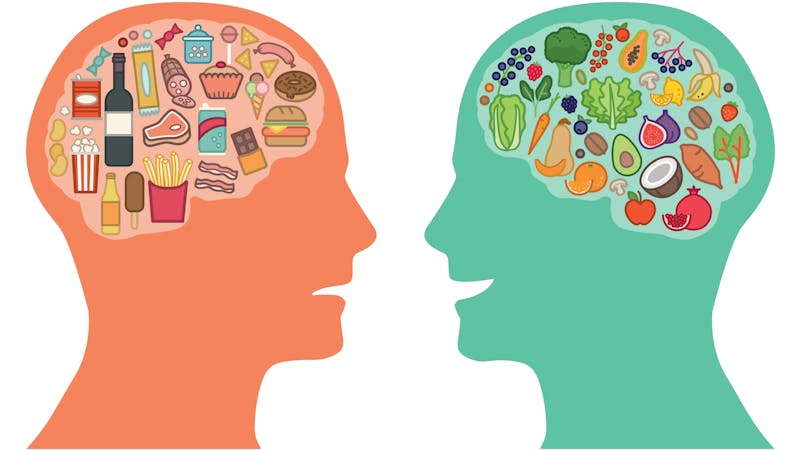Keto diet improves mental illness
A new study found that a ketogenic diet can significantly improve the symptoms of serious mental illness, such as major depression, bipolar disorder, and schizophrenia.
These significant improvements came among hospitalized patients with long-term mental illness who previously had not responded to conventional therapies.
The study found the keto diet in psychiatric patients was safe, well tolerated, and associated with significant and substantial improvements in depression and psychosis symptoms, and in multiple markers of metabolic health.
“More evidence continues to accumulate showing the potential use of ketogenic diets in various mental health conditions. It’s time to take this seriously,” said Dr. Bret Scher, medical director of Diet Doctor, in this DDNewsvideo.
The study was conducted by French psychiatrist Dr. Albert Danan with support from US psychiatrist Dr. Georgia Ede, low carb expert Dr. Eric Westman, and health researcher Laura Saslow, PhD. Drs. Ede and Westman are frequent contributors to Diet Doctor.
Published in the July 2022 issue of Frontiers of Psychiatry, the study notes that globally, an estimated 85 million people suffer from serious, persistent bipolar mood and psychotic illnesses and at least 280 million are thought to have persistent depression. But even with modern professional care, “improvement eludes many and remission is rare.”
Frontiers in Psychiatry: The ketogenic diet for refractory mental Illness: a retrospective analysis of 31 inpatients
Dr. Danan decided to do the study after one of his own family members experienced significant improvements in seizures and autism symptoms within three weeks of starting a ketogenic diet. He wondered if the diet might help some of his treatment-resistant psychiatric patients, some of whom he had been seeing for more than 30 years. He found 31 patients who were keen to try the diet in a hospital setting.
Between May 2019 and April 2020, 31 adults with severe, persistent mental illness (major depressive disorder, bipolar disorder, and schizoaffective disorder), whose symptoms were poorly controlled despite intensive psychiatric management, were admitted to a psychiatric hospital in Toulouse, France.
They were fed a ketogenic diet with a maximum of 20 grams of carbs per day. The diet consisted of 5% of calories from carbs, 15% to 20% from protein, and 75% to 80% from fat. The patients also received conventional inpatient care.
Three of the patients tried the diet for fewer than 14 days, then stopped. They found the diet too restrictive or had an aversion to eating high amounts of fat. The other 28 continued with the diet and were followed up to a maximum of 286 days. Some decided to continue the diet even after being discharged from the hospital.
While there was no control group, since most of the patients had been hospitalized for their condition before, each one served as his or her own control. The results were impressive:
- 100% had symptoms improve
- 96% lost weight
- 63% were discharged on fewer medications
- 43% achieved clinical remission
The authors concluded that the diet was well-tolerated, easy to administer, and associated with substantial and statistically significant improvements in symptoms not observed during previous hospitalizations.
“Given that the interventions implemented during this hospitalization differed only in the addition of the ketogenic diet to usual care, we believe it is likely that the diet contributed considerably to these unprecedented mental health improvements,” the authors note.
Dr. Scher stressed that while more studies are needed, the ketogenic diet could play an important role in the treatment of mental illness, especially if patients are given effective support and coaching to do the diet.
“We should be looking at this more, we should be talking about this more, we should be promoting this more and we should be studying this more!” said Dr. Scher.
He added, however: “I’m pretty optimistic about the future of ketogenic diets as part of the treatment modality for mental health conditions because the evidence keeps growing.”
You can see Dr. Scher’s recent podcast about keto diets and bipolar disorder here.
Each week, Dr. Scher creates two or three videos that review relevant or interesting scientific studies in the fields of nutrition, exercise, health, or disease and carefully analyzes the researchers’ methods and findings. In doing so, he helps you better understand how to judge the quality of various research papers and make informed decisions about your own health and wellness.
You can find more of Dr. Scher’s news videos on the Diet Doctor Youtube Channel. Subscribe to the feed so that you don’t miss any of his videos.
Or you can find out more about how to get started on a keto diet here



